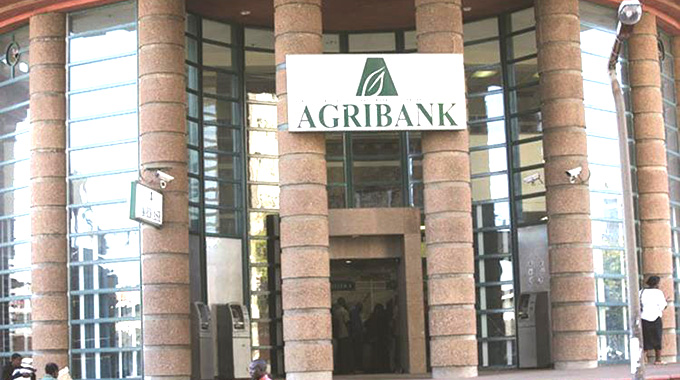Restructuring Agribank bodes well for agricultural financing

Obert Chifamba
Agri-Insight
IN her post-Cabinet briefing with journalists last Tuesday, Information, Publicity and Broadcasting Services Minister Senator Monica Mutsvangwa announced the approval of the restructuring of Agribank into a land bank in a move expected to significantly improve farmers’ access to agricultural financing.
Essentially, the move feeds into the country’s Agriculture Recovery Plan, which is aimed at ensuring food self-sufficiency for the country as well as help slash the food import bill that is chewing into the fiscus every year in the wake of recurrent droughts and economic challenges making it difficult for farmers to produce effectively.
And once this remodelling of the bank is implemented, much of the money currently going towards food imports will be freed for re-deployment elsewhere.
And besides improving farmers’ access to agricultural financing, the move will also mean that there will be an improvement in the availability of raw materials for the agro-processing industries that have equally been struggling to operate effectively with the agriculture sector not anywhere near its best.
Actually, the move to give Agribank this crucial role will replicate what the Agricultural Finance Corporation (AFC) used to do in the past with former commercial farmers that were privileged to have ready access to affordable loans, which impacted positively on production.
AFC would have flexible terms for its clients that would promote high production levels while farmers would on the other hand also honour their obligations and repay, which allowed the bank to remain viable. But this is not to say that farmers should adopt a pedestrian way of doing business because the lender would be lenient and not demanding a hand and an arm as collateral but must utilise the opportunities that come with the flexible borrowing terms.
The reality on the ground is that if the bank has stringent requirements on collateral and even repayment terms that would effectively shut the door on many smallholder farmers, most of whom do not have much in terms of properties to offer as security yet participate effectively in the production of food crops that promote food security both on the family and national scale.
But the bottom line is that farmers should just learn to develop a culture of repaying loans to allow the fund to keep revolving.
I vividly remember at some point farmers losing scotch carts, ploughs and sometimes furniture to AFC after they would have abused its leniency even if it was one of the friendliest institutions to farmers, so this should not also happen with Agribank.
Anyway, the Government should work out a way of taking on board the smallholder farmers too so that they can produce effectively and repay loans after each season.
In the run-up to the restructuring of the bank, it is crucial for the Government to start consultations with farmers intending to utilise the financing facility when it becomes operational and include their expectations in the planning process so that no farmer category will feel excluded when the programme gets operational.
This decision by the Government has naturally generated a lot of excitement among stakeholders in the agriculture sector, as they feel something is actually beginning to happen as far as production is concerned.
A long-time friend of mine, Paul Zakariya (Zimbabwe Farmers Union executive director) was upbeat, saying once remodelled into a land bank, Agribank would be the first financial institution focusing on financing land and agriculture and should accommodate all farmer categories from the small-scale, communal to large-scale commercial.
The move also means the country may see many farmers graduating from producing merely for their domestic needs to the commercial level where they will be targeting income generation.
On the one hand, farmers should also expedite the process by putting their expectations together so that they are included in the current planning process while Agribank should also be alert to the different agro-ecological regions from which the farmers will be operating and give them packages appropriate to their areas’ line of production.
The establishment of vibrant and diversified rural financial services, which are underwritten by a land bank or its equivalent will be an important step, which the country should take in order to move towards upper middle income status.
The development of agriculture has, in fact, remained the country’s most direct route to import substitution, reduction of hunger, poverty and malnutrition.
The Second Republic has been very clear on its plans for the agriculture sector with national production expected to reach 1,8 million tonnes of cereals and 360 000 tonnes of oil seeds, both sufficient to meet human consumption requirements for a year and has duly introduced the climate-proofed Pfumvudza concept to address problems of low productivity, low production and low profitability in farming.
This is something that has been haunting agriculture for some time now, hence the coming on board of Agribank for the financing role will effectively bolster Government’s drive to get the country’s agro-based economy fully functioning once again.
The country had become a perennial net importer of cereal grains amounting to US$800 million annually, which was stalling development in many other key sectors of the economy while that money could have been used elsewhere as the march to transform the economy into an upper middle income one by 2030 gathers steam.
It is also exciting to note that financial institutions like Steward Bank have also decided to come into the farming fray after recently partnering Cassava Smartech Zimbabwe to launch AgroFuture, a new agribusiness product billed to be capable of boosting agricultural production. The product to be delivered in partnership with Cassava entities EcoCash, EcoSure, Vaya, Moovah and EcoFarmer will offer tailor made solutions to specific needs of the agriculture value chain.
This will positively impact on the country’s drive to boost productivity in agriculture and help ensure that enough is produced to meet national demand and reduce the food import bill.
Agriculture and food security are undoubtedly at the core of basic survival for the general populace across the country, hence support of agribusiness activities will certainly have a great economic and social impact.
The product will also enhance agricultural production by providing access to finance and key innovations to farmers, rural agro-dealers, aggregators and manufacturing companies.
Agriculture employs close to 70 percent of Zimbabwe’s population and provides about 60 percent of the raw materials required by the manufacturing industry although production levels had dipped in the recent past in a development blamed on inadequate financing, among other things.







Comments